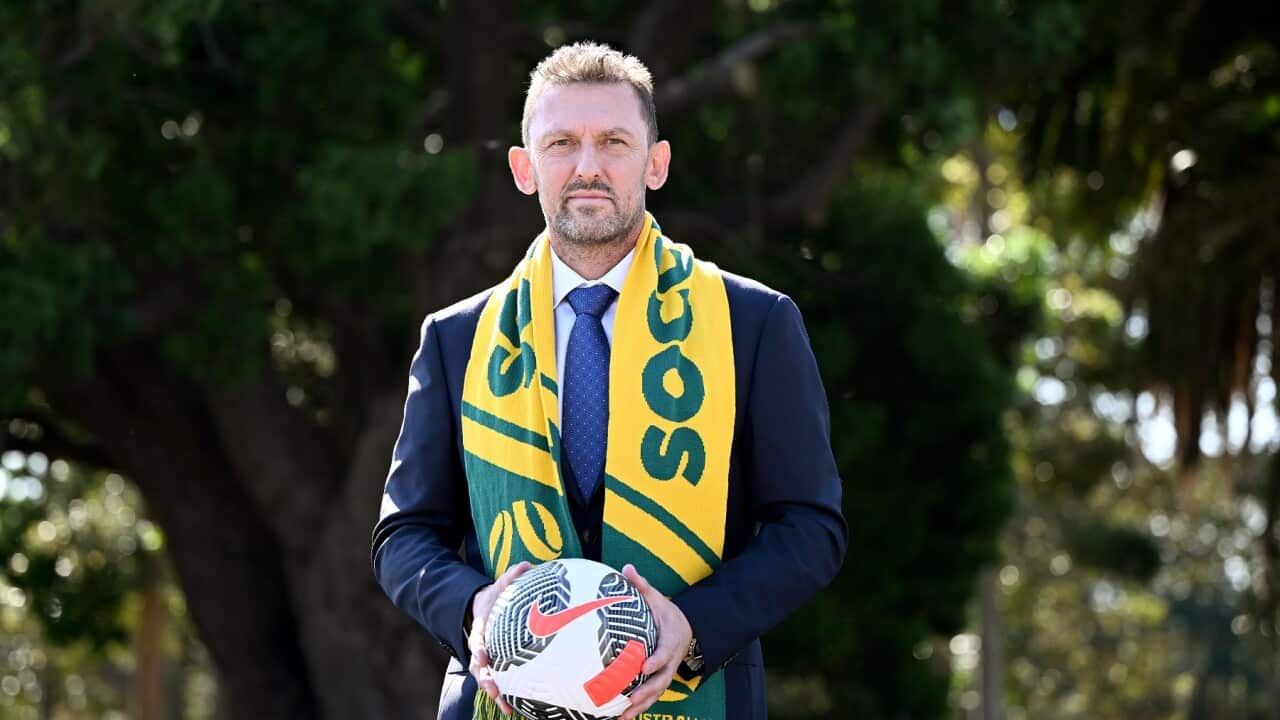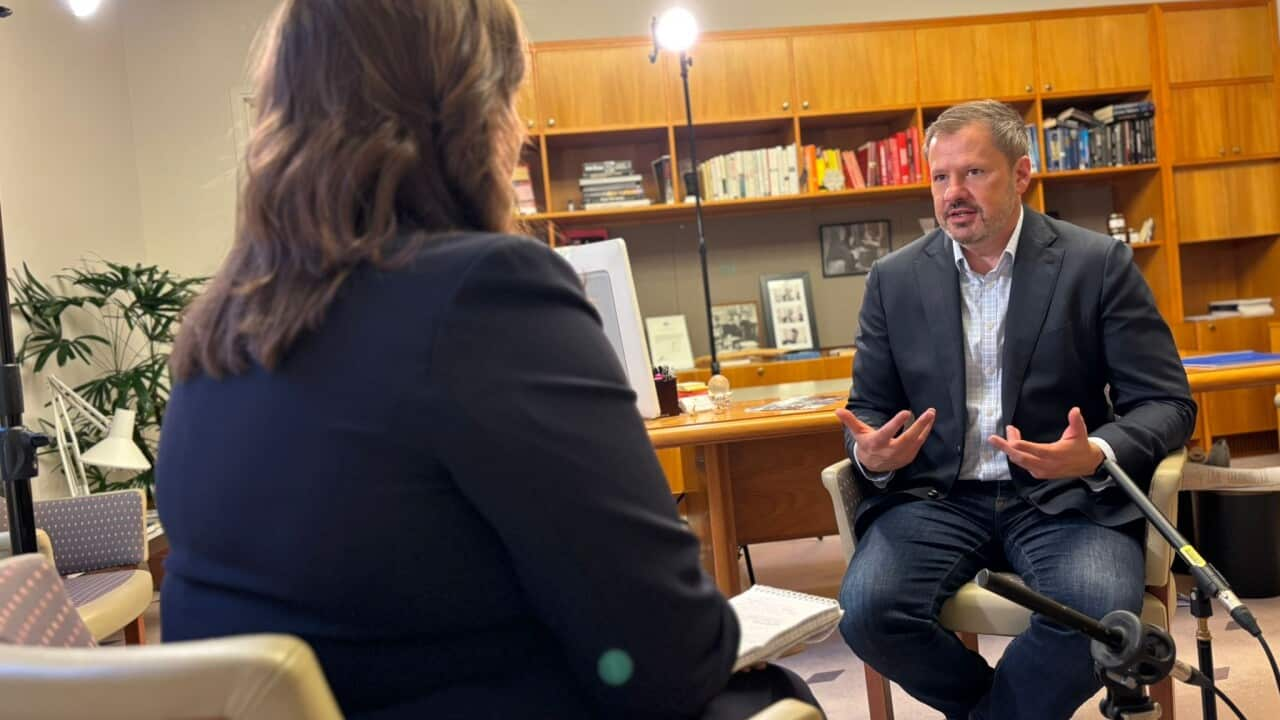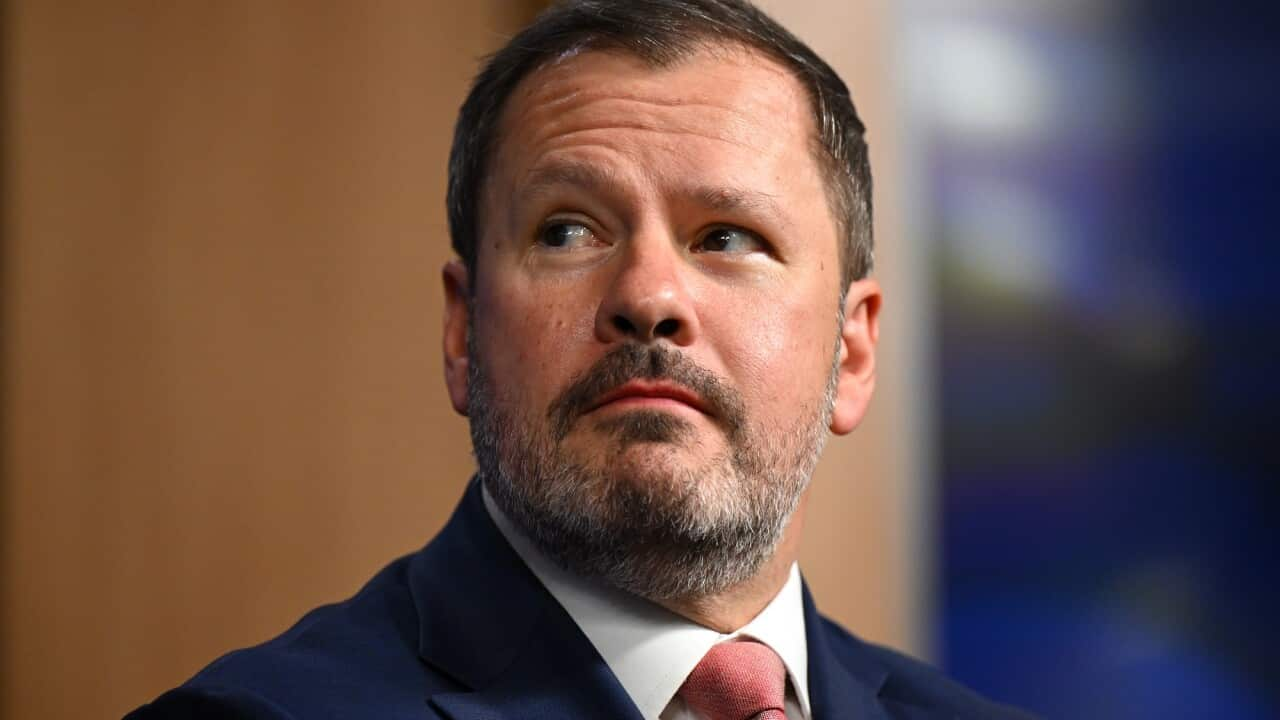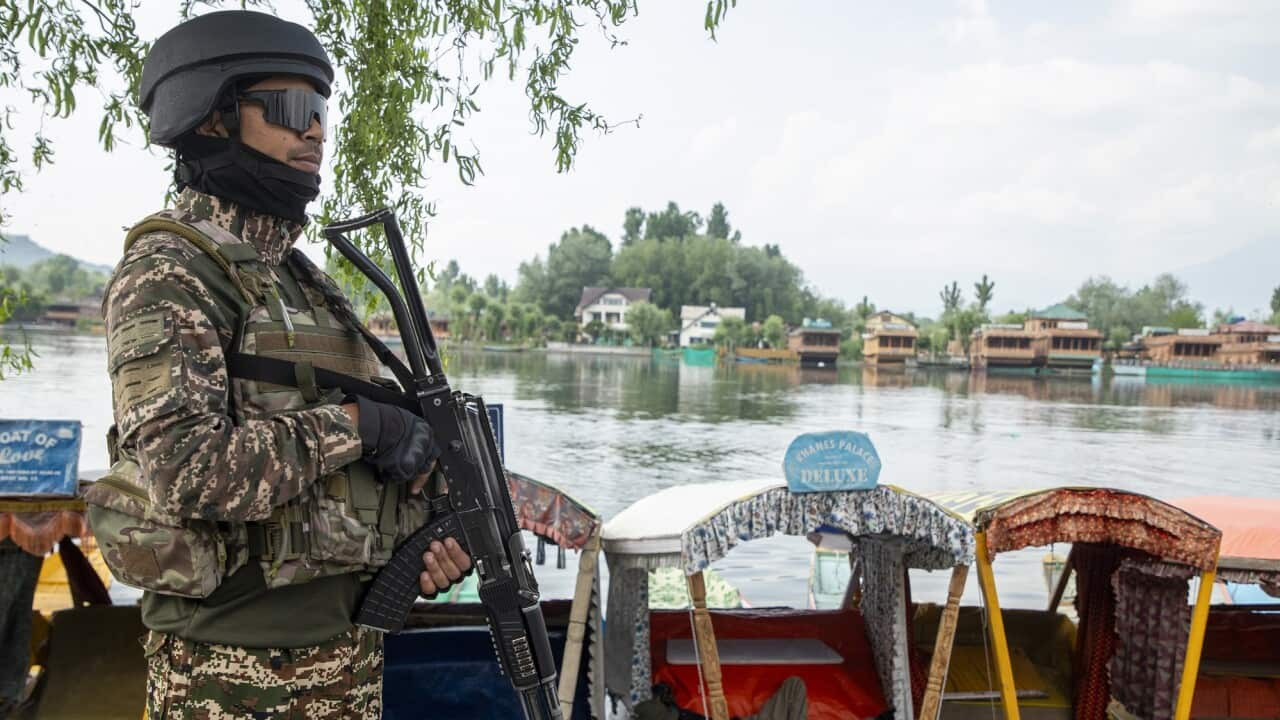TRANSCRIPT
Signed, sealed, and delivered.
The Socceroos have their new coach in 51-year-old Tony Popovic, after a whirlwind recruitment process which, less than a week after it started, has him moving back to Australia from where he had been living for the last four months or so, in Croatia.
His contract runs through the end of the 2026 World Cup- of which Australia is in the midst of trying to qualify for.
Football Australia Chief Executive James Johnson is somewhat coy about how they organisation secured Popovic, following Graham Arnold quitting the job last week.
But he says the organisation constantly keeps its ear to the ground in case of emergency- and those practises have borne fruit in the last seven days.
"You know, you've got to be prepared for any scenario. I feel that we were prepared as an organisation. Coming off the back of our last window, after the conversation that we had with Graham that ultimately saw his departure, we knew who was available and we knew who wasn't. We came up with a shortlist. We spoke with several candidates. But, as we did that, it became very clear who fit the description of what we wanted."
Johnson acknowledges Popovic's appointment is a watershed moment- the first member of Australia's so-called Golden Generation, which spearheaded qualification for the 2006 World Cup, to take the reins of the Socceroos.
Popovic's story is typical of those who powered that wonderful era of Aussie football.
Born in western Sydney to parents who had migrated from Croatia, he broke into senior football with Sydney United- the Croatian-backed club that has produced so many Socceroos.
A professional career that lasted nearly two decades followed- taking him to Japan, Qatar, and England to play club football.
Along the way, came 58 Socceroos appearances, including at the 2006 World Cup- Australia's first for 32 years.
And what the former defender learnt in his time as a Socceroo, he wants to instil int hose who play for the national team under him.
"We need to make sure that every player understands that honour is number one- to wear the shirt, and wear it with pride, and represent your country and your family, and I'll make sure that that is the first part that is instilled with this group. And the second part is that we play better than the Socceroos have ever played. That's the second part of the challenge. So, you've got to link the two. And, if we link the two, we, really, with those values, can do something special."
Following his retirement as a player in 2008, a coaching career followed.
He was the first coach of the Western Sydney Wanderers, winning coach of the season in 2012/2013, as the team became a sporting and cultural phenomenon on its way to the making the A-League Grand Final in its inaugural season.
It was the first of three A-League coach of the season awards- each with a different club.
There were also coaching stints abroad in Turkey and Greece.
Popovic left Melbourne Victory after the most recent A-League Grand Final in May, having elected not to renew his contract, after having resurrected the fortunes of the A-League giants.
He now takes the national team coaching job after two poor results in the first two games of the biggest round of qualifying for the 2026 World Cup.
But he rejects the idea he's taking over at an awkward time- mid-campaign, and just two and half weeks before his first match.
"Why wouldn't it be a good time? Results can sometimes mask when something is good, as well. The results haven't been good in the last two games. But, look at the history of what's been done with the Socceroos. Have a look at the World Cup. Have a look at the fantastic group of players that did remarkable things over there. A lot of those players are still there."
After a loss at home to Bahrain and a draw away to Indonesia, Australia is in fifth place in its six team group.
The top two teams in each group go straight to the 2026 World Cup- with the third and fourth placed team having to go to a repechage round of sorts.
Popovic says Australia can still top a group that features heavyweights Japan and Saudi Arabia.
But he knows club coaching- which he is used to- and national team coaching- which he's not used to- are distinctly different beasts.
"You don't have time to train the players. You don't have time to really instil a type of style or philosophy over training sessions. But you do have time, in terms of the communications you have with the players, the video analysis. Detail becomes very important. The one or two sessions that you have, you can't waste any. So, I understand it's a different situation for me, I'll also have to adapt. But I love a big challenge. And this is, obviously, the ultimate challenge."
With any coach, comes the question of playing style.
Popovic's success at the Western Sydney Wanderers came with a reputation for defensive solidity, moreso than flair- a reputation that's followed him ever since.
Popovic wants his team to play eye-catching football- but says style can't come at the expense substance.
"If you win, the public is on board. And then, when you win, there will always be the discussion: how can we do it better? And that's a good discussion, that's the right discussion. But we need to win. Australia needs to be qualifying for World Cups."
Popovic's Socceroos play China in their next World Cup qualifier Adelaide on the 10th of October, before heading to Saitama to play Japan five days later- Japan being a team they haven't beaten in any of their last nine encounters, dating back to 2009.
It'll be a hurried job for Popovic to pick his first staff and first playing squad, and he says he hasn't spoken to any players yet... although he emphasises any player who makes themselves available and deserves to be picked, will be.
Many will tell you a coach is only as good as his players.
Some will tell you that Australia simply doesn't have the requisite quality of player anymore.
The latter, an argument rejected outright by Popovic, who says he wants to be held to very high standards.
"We exceeded expectation at the World Cup. And, what follows from that is we expect more in the Asian qualifiers. And it's not a bad thing, is it? And I hope you expect more from me. And I hope you sit there and you expect more, so, when we win, you expect more. And, I think, that way, with that mindset, we have a chance to grow, and get better."
It's a challenge a large part of the Australian sporting public will no doubt take up with relish.













